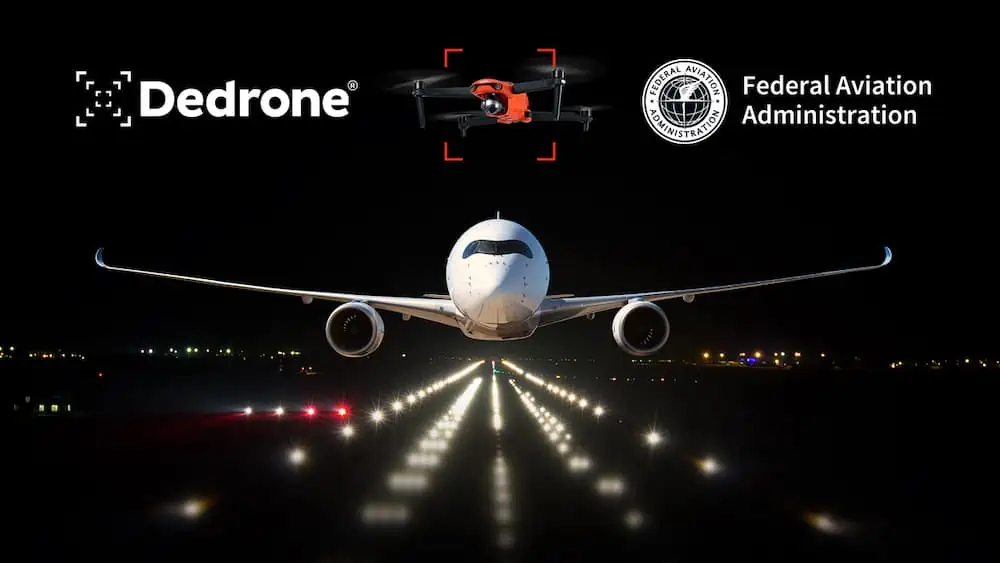
Dedrone is expanding its partnership with the Federal Aviation Administration (FAA) under Section 383 of the FAA Reauthorization Act of 2018, which provides for testing of counter-drone and drone detection, tracking, identification and mitigation technologies to develop clearer regulations around the use of these technologies at airports.
Dedrone was part of the first round of technologies selected for testing at Atlantic City International Airport and has now been invited to expand to a second airport as part of the ongoing research being conducted by the FAA to make airports safer from disruptions caused by drones.
“The threat of drone disruptions to airports and other critical infrastructure is persistent and escalating. We are honored to continue our work with the FAA to make airports safer for passengers, crew and airport staff by incorporating our counterdrone technology into existing airport security apparatuses,” said Aaditya Devarakonda, CEO of Dedrone. “We look forward to further supporting the FAA at this additional airport after successful implementation in Atlantic City.”
DedroneTracker, a sensor-fusion platform providing drone Detection, Tracking, Identification (DTI) and mitigation via sophisticated AI capabilities, is currently being used at both airports. DedroneTracker confirms drone presence and determines the precise location of the drone. Based on real-time drone behavior, imagery, known flight modeling and other inputs, the AI engine offers the operator a prioritized queue of targets through autonomous background interrogation while simultaneously tracking multiple friendly drones.
Dedrone has also been selected to work with the FAA on bringing safe mitigation technologies to airports, including the company’s DedroneDefender precision jammer. DedroneDefender comes equipped with narrow-band jamming to minimize disruption to other devices and meets military standard MIL-STD-810H. This use of narrow-band or ‘comb’ jamming reduces the risk of interference with other systems in the area.
The FAA testing is by invitation only and began in February 2022. It will continue through September 30, 2023 at a total of five airports around the country including Rickenbacker International Airport, Columbus, Ohio; Huntsville International Airport, Huntsville, Alabama; Syracuse Hancock International Airport, Syracuse, New York; and Seattle-Tacoma International Airport, Seattle, Washington, in addition to Atlantic City.
The FAA will use the results of the testing in its development of a plan for the certification and authorization of counter-drone detection and mitigation systems in the National Airspace System (NAS) including at airports around the country.
Find suppliers and manufacturers of anti drone technology and counter-UAS systems>>


















